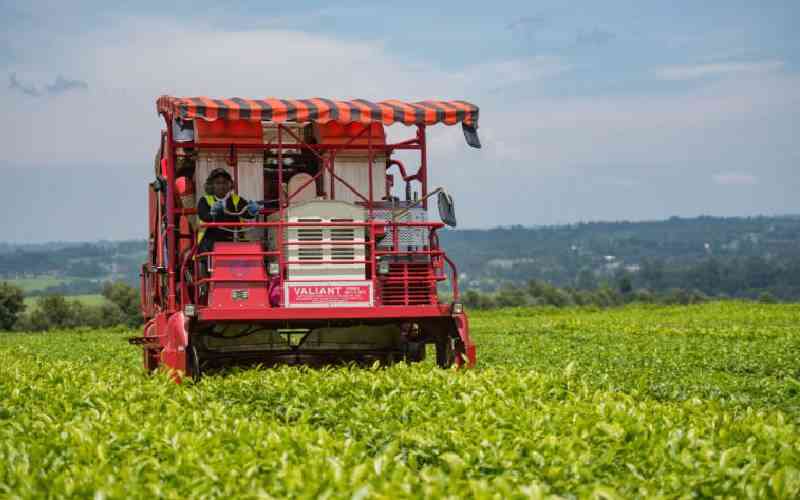×
The Standard e-Paper
Fearless, Trusted News

Tea companies in Kenya say they have to mechanise tea harvesting to stay afloat.
The large-scale tea firms, mostly in Rift Valley, say they face numerous challenges, some of them threatening their survival, and have had to implement a number of cost-saving measures including mechanising harvesting.